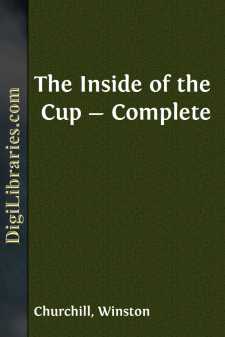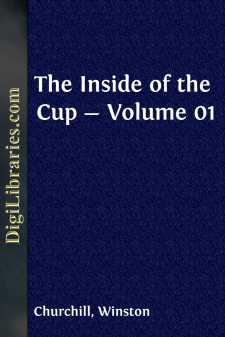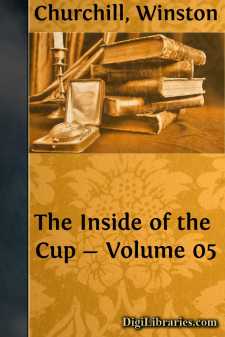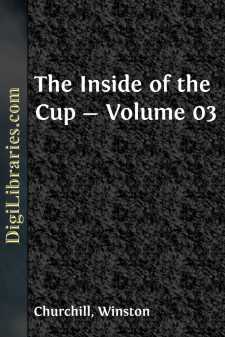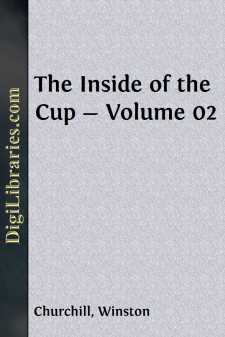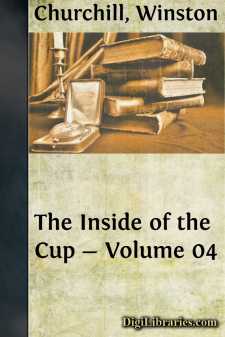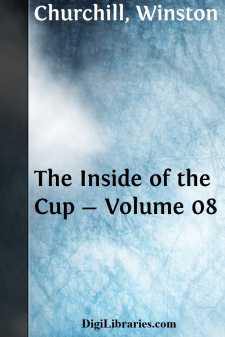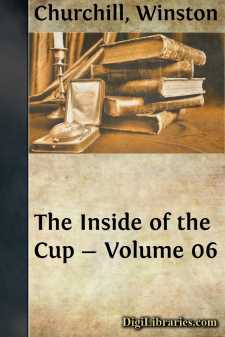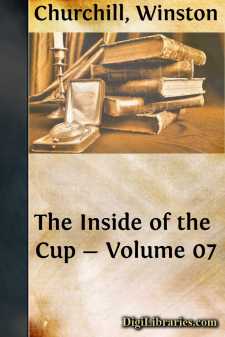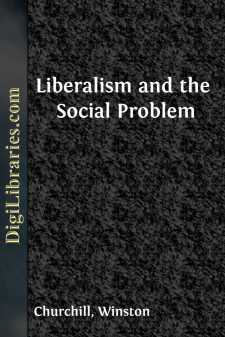Categories
- Antiques & Collectibles 13
- Architecture 36
- Art 48
- Bibles 22
- Biography & Autobiography 813
- Body, Mind & Spirit 142
- Business & Economics 28
- Children's Books 13
- Children's Fiction 10
- Computers 4
- Cooking 94
- Crafts & Hobbies 4
- Drama 346
- Education 46
- Family & Relationships 57
- Fiction 11828
- Games 19
- Gardening 17
- Health & Fitness 34
- History 1377
- House & Home 1
- Humor 147
- Juvenile Fiction 1873
- Juvenile Nonfiction 202
- Language Arts & Disciplines 88
- Law 16
- Literary Collections 686
- Literary Criticism 179
- Mathematics 13
- Medical 41
- Music 40
- Nature 179
- Non-Classifiable 1768
- Performing Arts 7
- Periodicals 1453
- Philosophy 64
- Photography 2
- Poetry 896
- Political Science 203
- Psychology 42
- Reference 154
- Religion 513
- Science 126
- Self-Help 84
- Social Science 81
- Sports & Recreation 34
- Study Aids 3
- Technology & Engineering 59
- Transportation 23
- Travel 463
- True Crime 29
Winston Churchill
Winston Churchill, renowned primarily as a British statesman and Prime Minister during World War II, was also a prolific writer and historian. He authored numerous books, including "The Second World War" and "A History of the English-Speaking Peoples," which won him the Nobel Prize in Literature in 1953. Churchill's writing is celebrated for its eloquence, depth of historical insight, and vivid narrative style.
Author's Books:
Sort by:
CHAPTER I. THE WARING PROBLEMSIWith few exceptions, the incidents recorded in these pages take place in one of the largest cities of the United States of America, and of that portion called the Middle West,—a city once conservative and provincial, and rather proud of these qualities; but now outgrown them, and linked by lightning limited trains to other teeming centers of the modern world: a city...
more...
THE WARING PROBLEMS I With few exceptions, the incidents recorded in these pages take place in one of the largest cities of the United States of America, and of that portion called the Middle West,—a city once conservative and provincial, and rather proud of these qualities; but now outgrown them, and linked by lightning limited trains to other teeming centers of the modern world: a city overtaken,...
more...
Life had indeed become complicated, paradoxical. He, John Hodder, a clergyman, rector of St. John's by virtue of not having resigned, had entered a restaurant of ill repute, had ordered champagne for an abandoned woman, and had no sense of sin when he awoke the next morning! The devil, in the language of orthodox theology, had led him there. He had fallen under the influence of the tempter of his...
more...
THE DIVINE DISCONTENT I It was the last Sunday in May, and in another week the annual flight to the seashore and the mountains would have begun again. The breezes stealing into the church through the open casements wafted hither and thither the odours of the chancel flowers, and mingled with those fainter and subtler perfumes set free by the rustling of summer gowns. As on this day he surveyed his...
more...
I Sunday after Sunday Hodder looked upon the same picture, the winter light filtering through emblazoned windows, falling athwart stone pillars, and staining with rich colours the marble of the centre aisle. The organ rolled out hymns and anthems, the voices of the white robed choir echoed among the arches. And Hodder's eye, sweeping over the decorous congregation, grew to recognize certain...
more...
WINTERBOURNE I Hodder fell asleep from sheer exhaustion, awaking during the night at occasional intervals to recall chimerical dreams in which the events of the day before were reflected, but caricatured and distorted. Alison Parr was talking to the woman in the flat, and both were changed, and yet he identified both: and on another occasion he saw a familiar figure surrounded by romping, ragged...
more...
RETRIBUTION I The Bishop's House was a comfortable, double dwelling of a smooth, bright red brick and large, plate-glass windows, situated in a plot at the western end of Waverley Place. It had been bought by the Diocese in the nineties, and was representative of that transitional period in American architecture when the mansard roof had been repudiated, when as yet no definite types had emerged...
more...
THE ARRAIGNMENT I Looking backward, Hodder perceived that he had really come to the momentous decision of remaining at St. John's in the twilight of an evening when, on returning home from seeing Kate Marcy at Mr. Bentley's he had entered the darkening church. It was then that his mission had appeared to him as a vision. Every day, afterward, his sense and knowledge of this mission had grown...
more...
THE CHOICE I Pondering over Alison's note, he suddenly recalled and verified some phrases which had struck him that summer on reading Harnack's celebrated History of Dogma, and around these he framed his reply. "To act as if faith in eternal life and in the living Christ was the simplest thing in the world, or a dogma to which one has to submit, is irreligious. . . It is Christian to pray...
more...
INTRODUCTION The series of speeches included in this volume ranges, in point of time, from the earlier months of Sir Henry Campbell-Bannerman's Government to the latest phase in the fortunes of Mr. Asquith's succeeding Ministry, and forms an argumentative defence of the basis of policy common to both Administrations. The addresses it contains deal with nearly all the great political topics of...
more...


